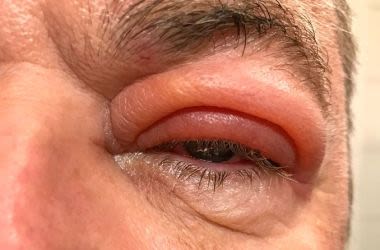
Eyes Infection
- Type of infections-
After you see your doctor, they may name the infection you have. You may hear them use medical terms like:
- Pinkeye (conjunctivitis).
- It's an infection of your conjunctiva and usually gives your eyes a pink tint. It can be caused by a bacteria or virus, although sometimes you might get it from an allergic reaction or irritants.
- It's common to get pinkeye when you have a cold.
- In adults, it is most commonly caused by a virus, and in children it is most likely bacterial.
- Keratitis.
- This is an inflammation of your cornea that can be caused by bacteria, viruses, or parasites in water.
- It's a common problem for people who wear contact lenses.
- Stye.
- It can crop up as painful red bumps under your eyelid or at the base of your eyelashes.
- You get them when the oil glands in your eyelid or eyelashes get infected with bacteria.
- These are similar to a pimple, and are not contagious.
- Fungal eye infections.
- It's rare to get infections from a fungus, but they can be serious if you do.
- Many fungal eye infections happen after an eye injury, especially if your eye was scraped by something from a plant, like a stick or a thorn.
- You can also get one if you wear contacts and don't clean them properly.
- Uveitis.
- This is an inflammation of the middle layer of your eye, called the uvea.
- It can be caused by certain viruses like herpes, but is more commonly linked to autoimmune disorders such as rheumatoid arthritis or lupus.

No comments:
Post a Comment